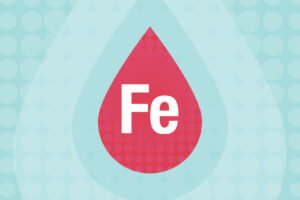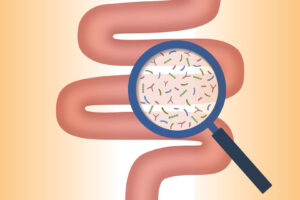Deep within your abdomen near your kidneys lie two small yet powerful glands that play a crucial role in the endocrine system and your well-being: the adrenal glands.
Your two adrenal glands are triangular and about the size of a fortune cookie.
The adrenal glands produce the “fight or flight” hormones, epinephrine and norepinephrine. These hormones kick in when you’re faced with a stressful situation – speeding up your heart rate and increasing the force of heart contractions to boost blood flow to the muscles and brain.
They also produce cortisol, aldosterone and androgens – steroid hormones that affect blood pressure, sodium and potassium levels, sleep and some sexual characteristics.
Signs of Adrenal Issues
“Adrenal diseases are rare, but when they do occur you can have a range of signs and symptoms caused by underactive or overactive adrenal hormones,” says CentraState endocrine surgeon Sarina Bains, MD.
› Underactive adrenal hormones
Low production of cortisol and androgens (Addison’s disease) is an autoimmune condition commonly known as adrenal insufficiency. It can cause weight loss, poor appetite, nausea, vomiting, fatigue and abdominal pain. Lifelong medications to treat hormone deficiencies are often needed.
Adrenal insufficiency shouldn’t be confused with “adrenal fatigue,” which is not recognized as a medical condition. Supplements for treating adrenal fatigue are often promoted online.
“It’s important to consult a healthcare professional for a proper diagnosis if you suspect adrenal gland issues,” says Dr. Bains. “Taking over-the-counter supplements without expert guidance can be risky.”
› Overactive adrenal hormones
In rare cases, adrenal glands can develop nodules or tumors that overproduce adrenal hormones. These are often benign, but still require treatment due to excessive hormone levels.
One of the signs that a gland may be overproducing hormones is high blood pressure. Other symptoms can include unexplained weight gain, high blood sugar and a racing heart, but there may be no symptoms.
“Overactive adrenal hormones can sometimes be treated with medication but, in most cases, removal of the adrenal gland or glands is required,” says Dr. Bains.
“At CentraState, we are unique in offering every type of minimally invasive surgery to perform this procedure. This not only meets each patient’s individual needs, but it also means a shorter, easier recovery.”
Diagnosing Adrenal Issues
Because adrenal issues are rare and symptoms overlap with other conditions, the best place to start if you are feeling unwell is with your primary care physician. If needed, your provider can then refer you to an endocrinologist for further testing.
“If an adrenal issue is suspected, our specialized team at CentraState’s new endocrine surgical practice can provide expert diagnosis and treatment,” says Dr. Bains.
PHYSICIANS AT CENTRASTATE
Schedule an appointment with a physician at CentraState or call us at 866-CENTRA7 (866-236-8727).





